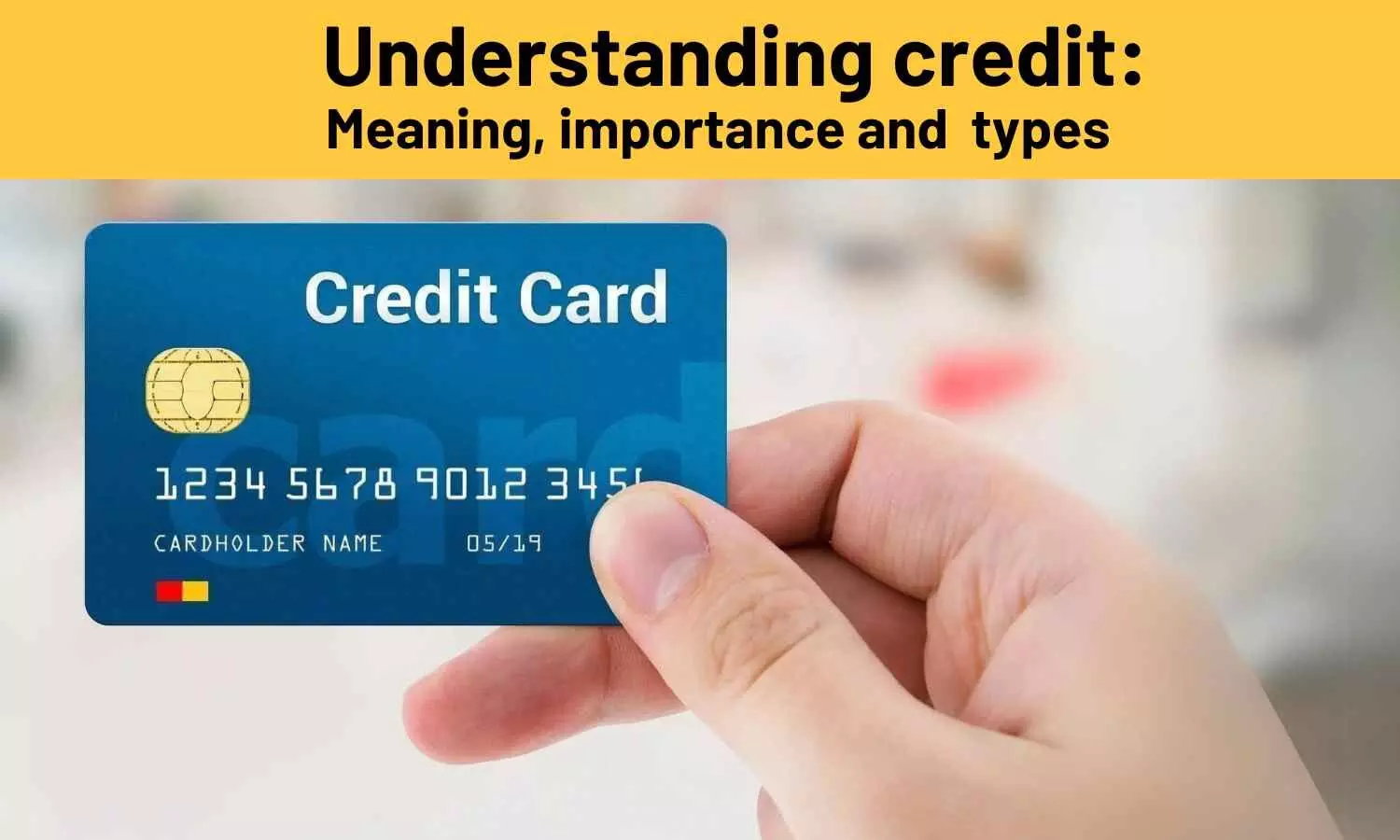What is Credit? Definition of Credit, Credit Meaning
Majority of us are well-known with one meaning of credit. However, in reality, credit encompasses various definitions. Let us have a look at its different meanings and common questions related to it.
image for illustrative purpose

We have all heard the word 'credit' frequently. But what is the first thing that comes to our mind when we come across it? Apart from its most well-known meaning, the word credit has more definitions attached to it. Let us explore!
Decoding the meaning
The term 'credit' often leads us to think of it as a mutually beneficial arrangement where the borrower takes money from the lender and repays it after a certain period of time at a decided interest rate. However, this is surely one but not the only meaning of credit. It also refers to the creditworthiness of an individual or a business and helps ascertain their ability to pay back debts. Further, in accounting, credit signifies a specific type of bookkeeping entry that affects a company's balance sheet.
Need and function of credit
When someone opts for credit, they are basically borrowing money from a lender and must repay the borrowed money with interest. This process assists in the development of an individual's credit history, displaying their borrowing and repayment activities. Having this information at their disposal allows lenders to ascertain whether the concerned person is credit-worthy or not.
The overall purpose of credit is to allow individuals to purchase items without having to pay for them right away. Whether it is bigger purchases such as a home or car or specific services, credit comes in handy. Further, maintaining a good credit score aids individuals secure lower interest rates and favourable loan terms.
Credit kinds
Secured credit: Acquiring a loan against some kind of collateral such as a car or house qualifies as secured credit. Car loans and home equity loans, amongst others, come under secured credit.
Revolving credit: This type of credit enables individuals to borrow money up to a certain limit, repay the borrowed amount and then use it again as required. This includes credit cards, retail cards and lines of credit.
Unsecured credit: This type of credit does not require individuals to provide any kind of collateral to secure the credit. It takes the borrower's creditworthiness into consideration to ascertain the eligibility for credit. Credit cards and personal loans are perfect examples of unsecured credit.
Installment credit: Borrowing a large sum of money and repaying over a period of time in regular installments is referred to as installment credit. This type of credit includes mortgages, vehicle loans and student loans.
Frequently asked questions
Q: Are credit and loan the same?
A: Both loans and credit are two separate ways of acquiring money. When it comes to credit, the bank issues a certain money that can be used by the consumer as needed.
Q: What do you mean by credit score?
A: A credit score takes your credit history into account to come up with a numerical figure that represents your creditworthiness. It typically ranges from 300 to 850 and it is utilized by lenders to examine the lending risk.
Q: What is the credit limit?
A: A credit limit represents the maximum amount of credit available to the borrower. This limit is determined by the lender i.e. the bank or the credit card company.
Q: What is a line of credit?
A: A line of credit provides borrowers with access to a predetermined sum of money that they can use as needed. This flexible borrowing arrangement enables the borrowers to draw funds up to a specified credit limit, provided they meet the terms and conditions of the agreement.

